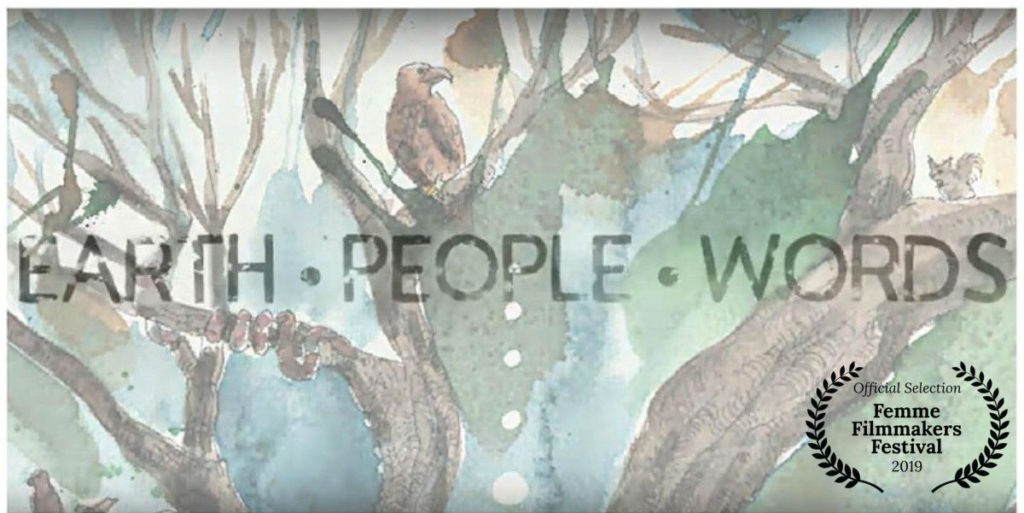Documentaries have long been an opportunity for filmmakers to make a statement, using real people’s stories combined with pointed interviews. The medium has been used by some filmmakers to pick a side, propagate an idea, or fight against societal issues.
Dayna Reggero meanwhile is just trying to listen. Her short doc, Earth • People • Words, explores her interviews with four poets during the Asheville Wordfest earlier in 2019. Reggero provides a space for poets, including Joy Harjo, the first Native American United States Poet Laureate, speak on community, society, and climate change. We get a glimpse into the thoughts of those whose writing we consider beautiful.
Their sentences rustle and sweep across you, and I found myself rewinding 15 seconds to hear each one of them speak again. It’s fascinating to hear these people speak, for we rarely give them our time outside of reading their names on pages in a book.
The poets featured come from different backgrounds, live in different places, and write on different topics. They might share the same profession, but their paths have winded through much different woods. Each poet speaks with conviction, yet barely raises their voices above a whisper. Their power is displayed in their softness and I’m even attempting to write (and speak) like them in this review, much to my own chagrin.
Though initially disconnected, this film focuses its lens on our future in this world, giving deep-thinkers the chance to speak to us directly. It’s a hopeful film, and I found myself lost in my own thoughts by the end of it. There are no elaborate backdrops, no wide-shots of this beautiful earth, and no lines of dialogue from the other side of the camera. It’s a one-way conversation, yet an invitation to participate in the revolving discourse of solving the problems we’ve most likely created.
These poets, Joy Harjo, Elizabeth Bradfield, Sean Hill, and Laura Hope-Gill, deserve our ears at least for these 13 minutes, and once you hear them, you’ll likely want to hear more. If we band together and take a deep look, not just a glance, at making changes, we can turn this ship around.
I left this documentary more optimistic, more aware, and more resolved to chip in. I’m sure whoever sees Reggero’s film will feel the same.

